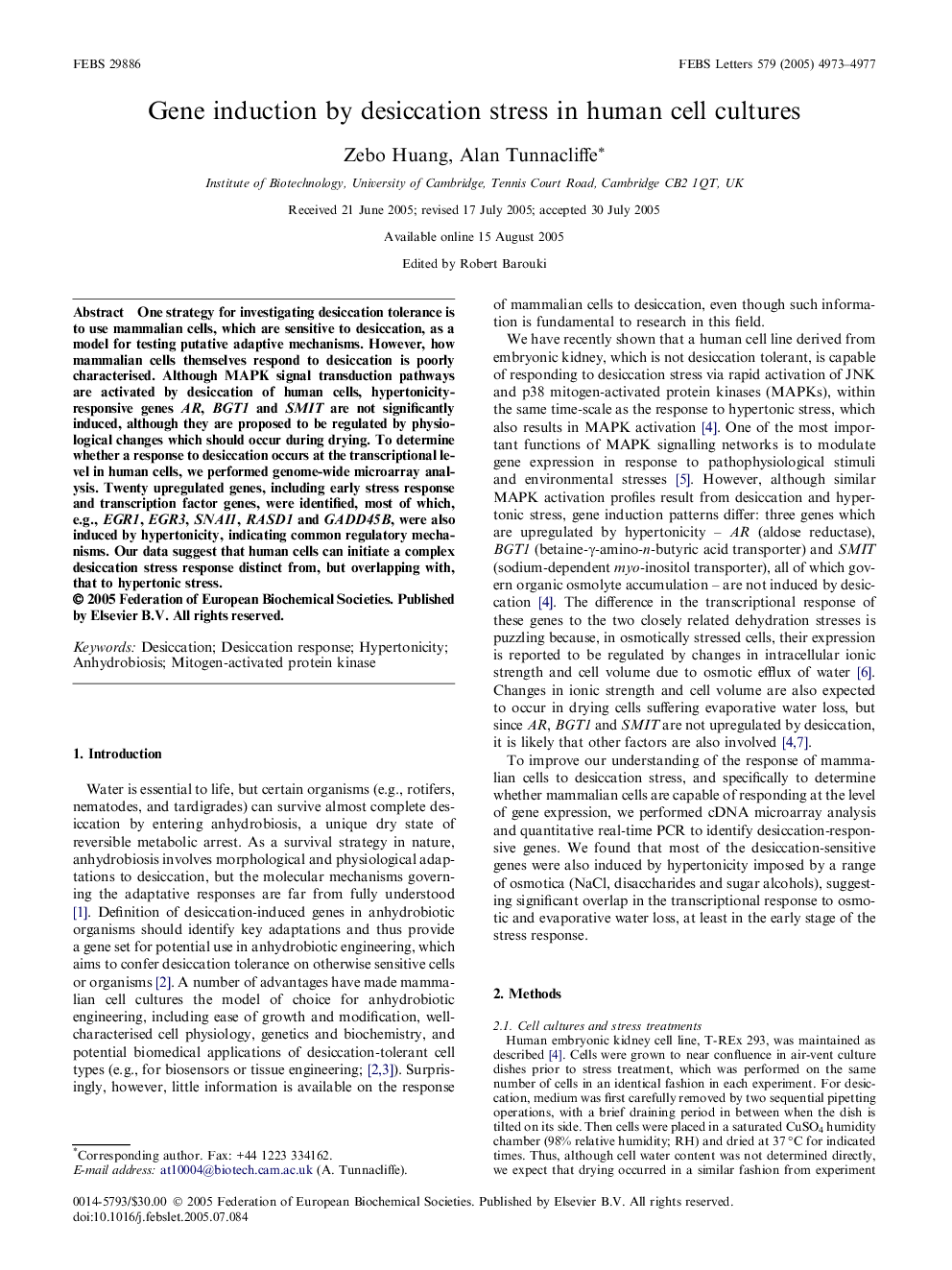| Article ID | Journal | Published Year | Pages | File Type |
|---|---|---|---|---|
| 2053133 | FEBS Letters | 2005 | 5 Pages |
One strategy for investigating desiccation tolerance is to use mammalian cells, which are sensitive to desiccation, as a model for testing putative adaptive mechanisms. However, how mammalian cells themselves respond to desiccation is poorly characterised. Although MAPK signal transduction pathways are activated by desiccation of human cells, hypertonicity-responsive genes AR, BGT1 and SMIT are not significantly induced, although they are proposed to be regulated by physiological changes which should occur during drying. To determine whether a response to desiccation occurs at the transcriptional level in human cells, we performed genome-wide microarray analysis. Twenty upregulated genes, including early stress response and transcription factor genes, were identified, most of which, e.g., EGR1, EGR3, SNAI1, RASD1 and GADD45B, were also induced by hypertonicity, indicating common regulatory mechanisms. Our data suggest that human cells can initiate a complex desiccation stress response distinct from, but overlapping with, that to hypertonic stress.
